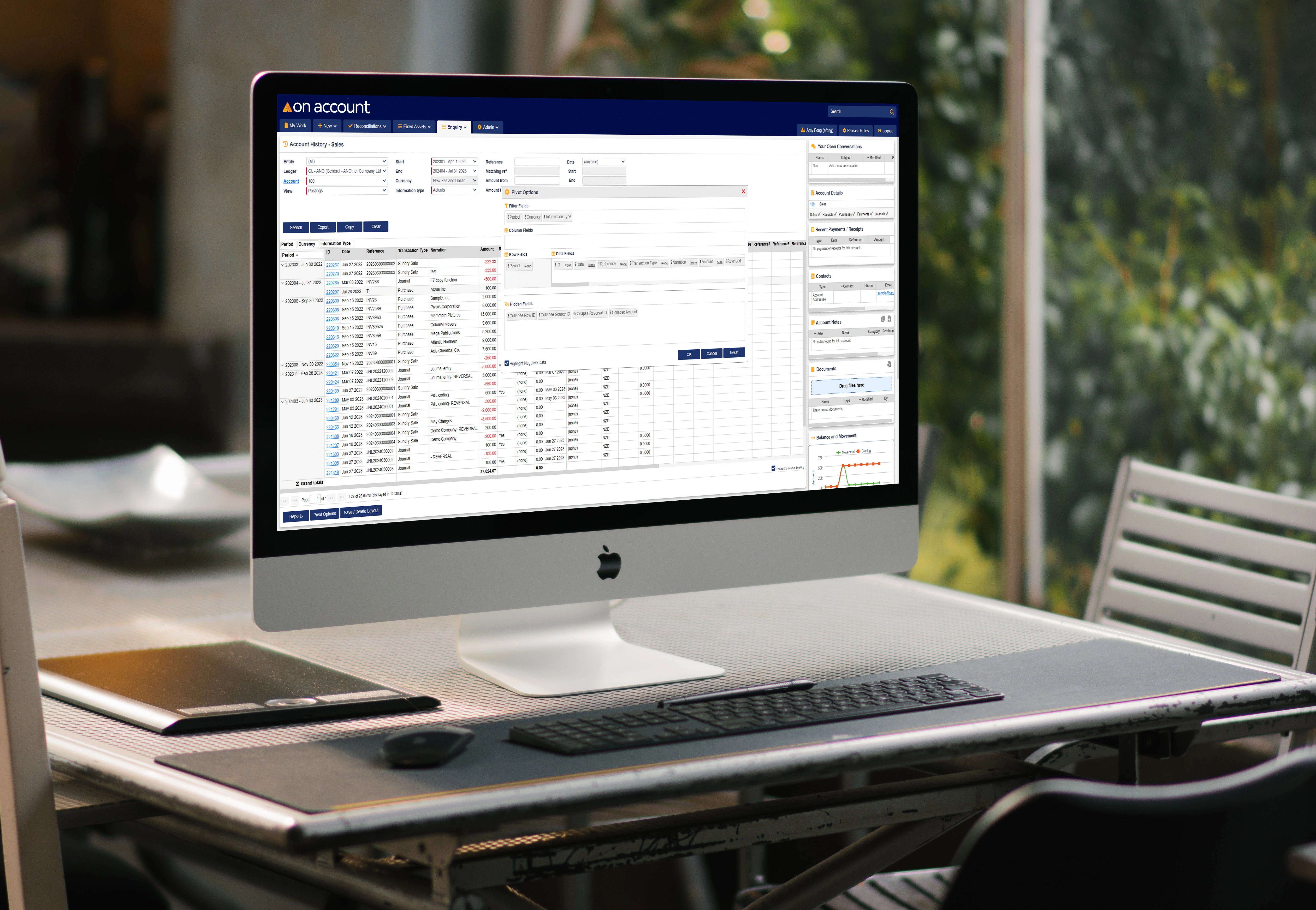Tax on “remote” and virtual services has received a lot of airplay here in NZ and Australia, with the introduction of changes dubbed the “Netflix tax”.
What hasn’t received so much attention from the media is the impact of Goods and Services Tax (GST) on NZ businesses who sell products and services via non-resident “remote” service agents.
GST is a value-added tax or consumption tax for goods and services consumed in New Zealand, similar to GST regimes in countries like Australia and Canada, and is generally added to sales charges if the customer is a New Zealand resident.
These recent changes and other clarifications around tax in NZ are presenting some interesting challenges to systems and past accounting treatment. Due to the universal nature of the internet, these challenges are also being faced by many other countries and their various tax regimes.
Sandfield recommends that all our business customers have regular contact with tax experts for any of the countries they have operations or customers.
Usually these changes can be accommodated by your business, eCommerce and accounting systems and will involve minimal training and awareness from the business and finance teams.
Sometimes however those changes are not so easily handled by your systems and your finance team will need to be on top of any changes, manual workarounds and efforts to manage the required data capture and exposure to risk.
Sandfield’s On Account is an advanced finance and management accounting solution that has both built-in and highly flexible tax accounting standard capabilities. It can also be configured to handle and generate unusual and complex tax behaviours, business rules and checks to ensure that less straight forward accounting and reporting requirements are robustly captured and managed by the system.
We thought we’d dig a little deeper on some of the latest tax updates, and highlight some of the ones we find especially interesting in how they may impact the processes of finance teams.
GST on fees/commissions paid to “remote” service agents
An example might be a hotel here in NZ picking up sales via Trivago. Typically these arrangements mean that the “remote” service agent (in this example, Trivago), earns a fee/commission on any sales made.
The GST status of that agent fee/commission when the purchaser is a NZ resident has been a source of confusion between the NZ Inland Revenue Department, NZ hotel businesses and these “remote” service agents. Below is a good example of the journey the hospitality industry here in NZ is undergoing in clarifying the tax accounting in this area. Below are best practice examples taken from the Hospitality NZ website:
Online Travel Agent (OTA) commissions/fees and GST
There is no GST input tax claim available in respect of a non-resident OTA fee, this should be evident from the fact that most non-resident OTAs do not provide a GST invoice:
Scenario A - customer (NZ resident) pays hotel for room booked via OTA
Accommodation revenue (excluding GST): $100.00
GST (15%): $ 15.00
Deposit to hotel bank account: $115.00
OTA fee (15% of $115) $17.25 paid to OTA - no GST included
Result: Hotel receives (after GST and OTA fee) $82.75 net revenue
Scenario B - customer (NZ resident) pays OTA for hotel room
OTA charges customer: $115
OTA deposit to hotel’s bank account: $97.75
Accommodation revenue (excluding GST): $100.00
GST (15%): $15.00
OTA fee (15% of $115): $17.25 already deducted by OTA - no GST included
Result: Hotel receives (after GST and OTA fee) $82.75 net revenue
NZ Withholding Tax on Contractors and Labour Hire Arrangements
Recent changes in the law around this area expand the definition of employment arrangements covered by withholding tax deduction. The changes also offer greater flexibility to people covered, by offering variable rate withholding tax certification rather than a standard fixed rate.
The biggest impact for businesses affected by this change has been that contractor remuneration processes and data have had to be migrated into the payroll system.
This law change is a clear statement of intent from the NZ Government to expand the coverage of the withholding tax regime to look to include all contract/sub-contract arrangements. The objective appears to be to provide better visibility of these arrangements and the parties to tax authorities, by compelling both income declaration and withholding tax deductions at source, coupled with flexibility around the arrangements to ensure the withholding tax rates applied are appropriate to a taxpayer’s circumstances.
From 1 April 2017, the way some contractors pay tax on schedular payments has changed, giving them greater choice and helping them get their tax right. Schedular payments are specified payments contractors receive for certain types of work. Income tax is deducted before the payment is made to the contractor.
Contractors who don't receive a type of schedular payment that is specifically covered by the IRD can still opt into the schedular payments rules with the agreement of their payer.
If you work under a labour hire arrangement for a labour hire business you'll need to complete an IR330C and give it to your payer. You can choose the tax rate you want deducted or use the standard tax rate for the activity type you do. They will deduct tax from payments made to you from 1 April 2017, regardless of when the work was completed or the contract was signed.
If you're a New Zealand tax resident you can't apply for a certificate of exemption for these payments, but you may be able to apply for a 0% special tax rate instead.
Conclusion
We highly recommend to our customers that they engage in regular contact with tax experts in the countries they are operating or selling to customers in. Forewarned is forearmed.
Again, many tax and legal rule changes can be accommodated by your systems, business and finance teams. However, the changes that are more challenging will be a significant source of stress and risk of non-compliance for your business.
Make life easier for your finance team by demanding more flexibility of your accounting system. Having an advanced management accounting solution that has both built-in and highly flexible tax accounting capabilities frees up the the team to focus on the tasks that better need their experience and intellect.












